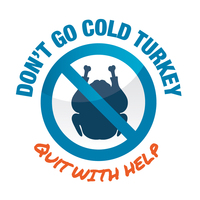Quit for good this World No Smoking Day

Research shows more than half of smokers in the UK are not aware that there is free expert support available from healthcare professionals which can increase chances of quitting by up to four times compared to using willpower alone.
British television actress Michelle Collins, who has been supporting the campaign, said “Seeking help from a healthcare professional made all the difference for me and I would definitely recommend it to other smokers who want to quit. I’m so pleased to have finally quit for good and I now refer to myself as a former smoker. I’ve noticed many benefits including my appearance, which I genuinely believe is better than when I was in my 30s when I was smoking heavily.”
Dr Sarah Jarvis, BBC medical correspondent and practising GP, said: “Most smokers are fully aware of the financial burden that a smoking habit can have on their lives but the vast majority are not taking advantage of the free help available to them from their healthcare professional. Having a conversation with a healthcare professional can help to increase a smoker’s chances of quitting by up to four times compared to using willpower alone. A healthcare professional or stop smoking service can talk to smokers about their options including things they’ve probably never considered.”
Here Dr Sarah Jarvis shares her top tips to help quit smoking for good:
Set a definitive quit date to work towards - plan a few weeks ahead so you have time to prepare and try to avoid a period that may be stressful anyway.
Write down your reasons for quitting - a simple step but this transforms your quitting goals from being a simple intention to something you can see and touch. Refer back to the list regularly to help you stay focused.
Keep a Quit Smoking Calendar - then tick off the days you haven’t smoked. By keeping this visual diary, you’ll be able to see at a glance how well you’re doing.
Reward yourself - stay motivated by arranging a treat for yourself with some of the money you’ve saved by not buying cigarettes.
Erase the trace – throw out your cigarettes, lighters, ashtrays and empty packs. Wash your clothes that smell of smoke and open your windows to clear the air.
Secure support of others – tell your friends who you usually smoke with about your quit attempt and ask them not to encourage you to have a cigarette.
Get advice from a healthcare professional - whether it’s your doctor, practise nurse, a pharmacist or a local stop smoking service advisor, they will be happy to help you and you’re considerably more likely to quit with their help.
Why visit a healthcare professional?
They can provide the right advice and explain the many treatment options available to you, some of which you may not know about
Smokers can increase their chances of quitting smoking by up to four times with the help of a healthcare professional or NHS Stop Smoking Service advisor than by going it alone
Apart from willpower, there is behavioural support, either through group or one-to-one sessions, nicotine replacement therapies, as well as prescription medications such as nicotine-free tablets
These options can make a real difference - 16% of smokers who got no support were still not smoking after 4 weeks compared to 74% who got a combination of support and medication
They will welcome the opportunity to talk about the options available with smokers who want to quit
Visit dgct.co.uk and use the postcode tool to find your local NHS Stop Smoking Service, or for instant advice call the QUIT line on 0800 00 22 55.
A reminder of the benefits of quitting smoking
From the second you stub out your last cigarette, your health will start to improve:
20 minutes - Your blood pressure and pulse return to normal
24 hours - Carbon monoxide is no longer in your body, and your lungs will start to clear mucus, ash particles and other debris caused by smoking
48 hours - There is no nicotine left in your body, and your sense of taste and smell are greatly improved
2 weeks to 3 months - Your circulation starts to improve
6 to 9 months - Your lung capacity increases by 5 – 10%
After 5 years - Your chances of a heart attack have halved compared to those of someone who is still smoking
After 10 years - Your risk of lung cancer has fallen to half that of a smoker, and your chances of having a heart attack are the same as someone who has never smoked

